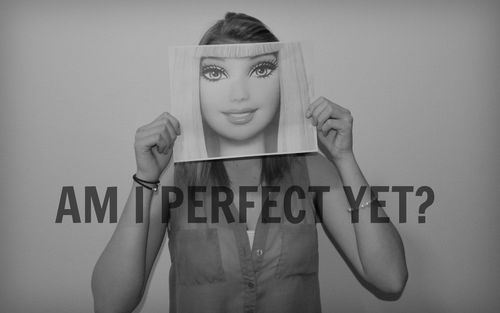Perfection is impossible, so stop expecting it from your relationships.
Expecting perfection can be problematic in life, particularly when it comes to romantic relationships. Whether you’re single and always looking for the perfect mate or in a relationship and expecting your partner to be everything you dreamed they would be, obsessing about the possibility of perfection can leave you perpetually unsatisfied and get in the way of your own happiness. That’s why, years ago, I developed a simple philosophy that I call the “80% Solution.”
When I start to feel dissatisfied with some dimension of a relationship, whether it’s at work, with a friend, or especially at home, I mentally list all of the strengths and weaknesses of that person. Then I compare my evaluation to my vision of perfection.
If the picture adds up to at least 80% of my ideal, then I will go with it and not spend a single second thinking about alternatives. If the “score” is between 60% and 79%, then I might start looking. Below 60%—it’s time to make a change . . . the sooner the better. Is your spouse or partner perfect? Not if you’ve lived with him or her for more than a few days. The proper question isn’t, “Is he or she perfect?” The useful question is: “Is he or she good enough, and are we compatible?” And if he or she is good enough, then I say magnify his or her positives and minimize their less important negatives. My wife Daveen and I are by no means perfect, but we have been together now for 35 years.
Despite the fact that I grew up with the idea that my “one and only” was somewhere out there, and that my only task was to find her, I now believe that in this world there are at least ten thousand women with whom I could be perfectly happy. But I have no idea where Daveen falls on the list of potential great wives. Is she number one? Unlikely. Number ten thousand? Unlikely. She is almost certainly somewhere in between the top and the bottom. I will never know Daveen’s exact ranking because it is impossible for me to meet, know, and compare each of those ten thousand possibilities. So I need to have a better method of deciding when I should stop looking for the perfect, and enthusiastically embrace the 80%.
Now in any relationship, it takes two to tango, so you need to apply the 80% Solution to yourself as well. Are you at or above 80% of your ideal for yourself? Think about it. You can’t very well eliminate yourself from your life, so if you’re not quite there yet, your task here is to bring your own score up to 80%. You can do this in two ways: lower your expectations or improve yourself. Either route has its own challenges, but if you do it, I’m confident that you’ll be much more satisfied with yourself, your relationships, and your life.
The 80% rule works. Granted, this method is entirely subjective, but what in your life isn’t? Your 80% might not be my 80%, but it is your 80% and that is what is important to you. Maybe you are more particular than I am and will only settle for a score of 90% (Good luck with that!). Maybe you’re more laid back than I am, and 70% is fine for you. No problem. Maybe you prefer a different score for different situations. Live it up, create your own matrix. The important point is to pick a standard, and live with it, or them.
What do you think of the 80% Solution? ALAN FOX is the author of The New York Times bestseller PEOPLE TOOLS: 54 Strategies for Building Relationships, Creating Joy, and Embracing Prosperity. Visit www.peopletoolsbook.com











